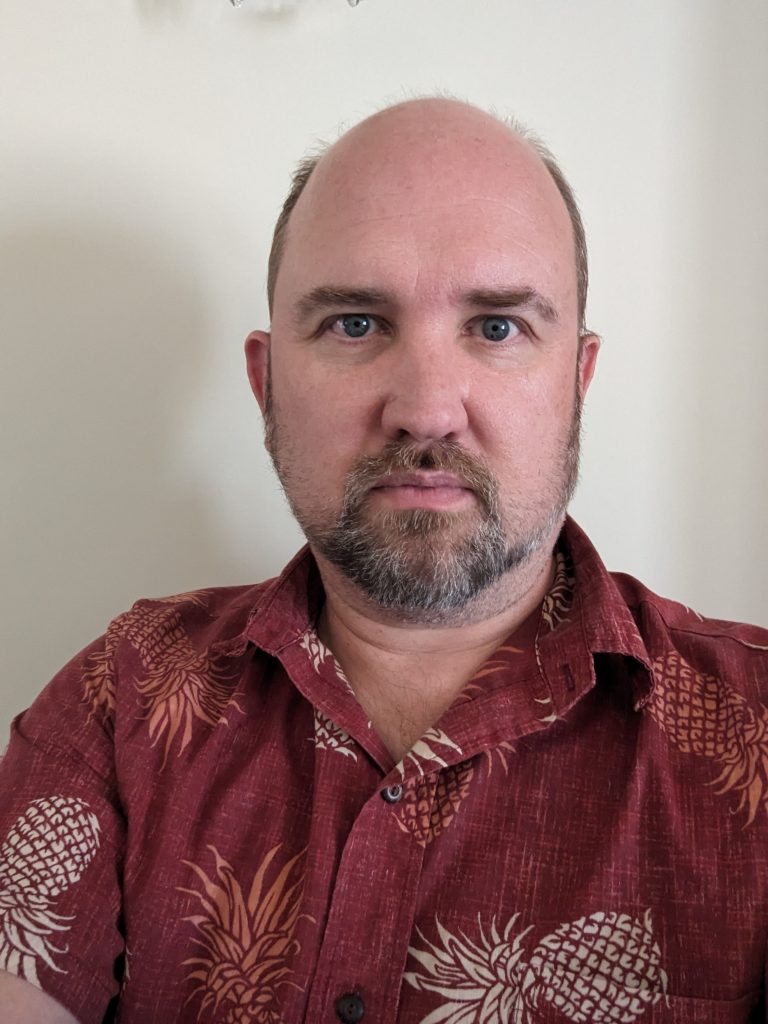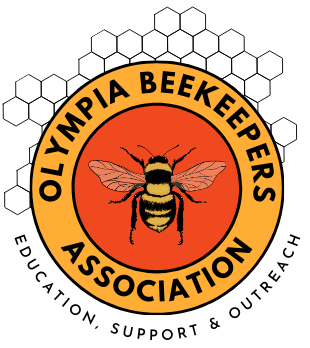
Nathan Alan
OBA President
OBA Member – 10 years
Q: How long have you been a Beekeeper?
A: I’ve been a member for about 10 years. I became a member right after I took a Beekeeping Apprenticeship Course. I remember I got bees the very first year I was a member.
Q: Describe why you became a Beekeeper and your overall beekeeping strategy.
A: I wanted a hobby that I could do with my kids at the Inn. I thought beekeeping was interesting, fun, and maybe I could make a little money. I liked the idea of having another feather in a cap. At the time I became a beekeeper my oldest child was six and youngest was two. My oldest child Lauren took the apprenticeship class with me. The course was a little advanced for her and that made me think that maybe there could be a Beekeepers course developed for kids. She liked the snacks and learned a lot.
Q: What do you love most about bees & beekeeping?
A: I love the club and the social aspect of beekeeping. I’m not the best beekeeper but I love the club and I’m putting all my efforts there for now.
Q: What kind of hives do you use and how many do you keep?
A: I keep Langstroth eight frame hives and run two brood boxes and supers or mediums. However, after taking class from Gail I will probably transition and just do all mediums. I have three active hives. I like to always have at least two. I’ve had as many as six. I have some good success with overwintering.
Q: What is your biggest beekeeping challenge you have overcome and how did you overcome it?
A: Time is my biggest challenge and I haven’t yet overcome it. I have so many ideas and not enough time to implement them all.
Q: What are your biggest beekeeping accomplishments or successes?
A: I had a nuc in my second year of beekeeping that kept growing, and growing. I wasn’t sure what I was doing, but I just kept adding boxes. I had four, five, six honey supers on top. There was about 150 pounds of honey or some ridiculous amount from that hive. I had to use a ladder to get them off – and they were so bloody heavy. It made me feel accomplished.
I also felt accomplished when I successfully overwintered my hives. There are so many factors to consider in overwintering here in the Pacific Northwest. For example, wasps and yellow jackets are big threats that we should talk about more.
Q: Describe your role with OBA and how members can connect with you to learn more.
A: Currently, I’m the President of OBA and it is a little like herding cats. I feel like OBA is in a good place. It is a volunteer organization and requires volunteering to make it all work. Members can always call me or email me.
Q: How have you benefited from being a member of OBA?
A: The biggest benefit for me has been the learning from the knowledge that the other members have. There are incredibly good speakers that OBA brings to the club meetings. I love to hear about what others are doing with bees and I definitely love the social networking that OBA offers.
Q: What do you like most about being a member of OBA?
A: I love the social aspect. There are all different sorts of people and so much diversity in Thurston County. I meet so many new people with all kinds of knowledge and experience to share.
Q: What tips or advice do you have for new beekeepers?
A: OBA has mentors – work with them. Remember that mentors are volunteers. If you are interested in mentoring or being mentored, connect with the OBA Mentorship Representative.
I recommend educating yourself before you get bees. Take a beekeeping class from OBA. You’ll have more success overwintering and keeping bees if you take a class and work with others.
If you have time and want to help, consider mentoring others, attending a meeting to share knowledge, staffing an event where OBA is conducting outreach to the public or reaching out to members to see if anyone needs a hand.
